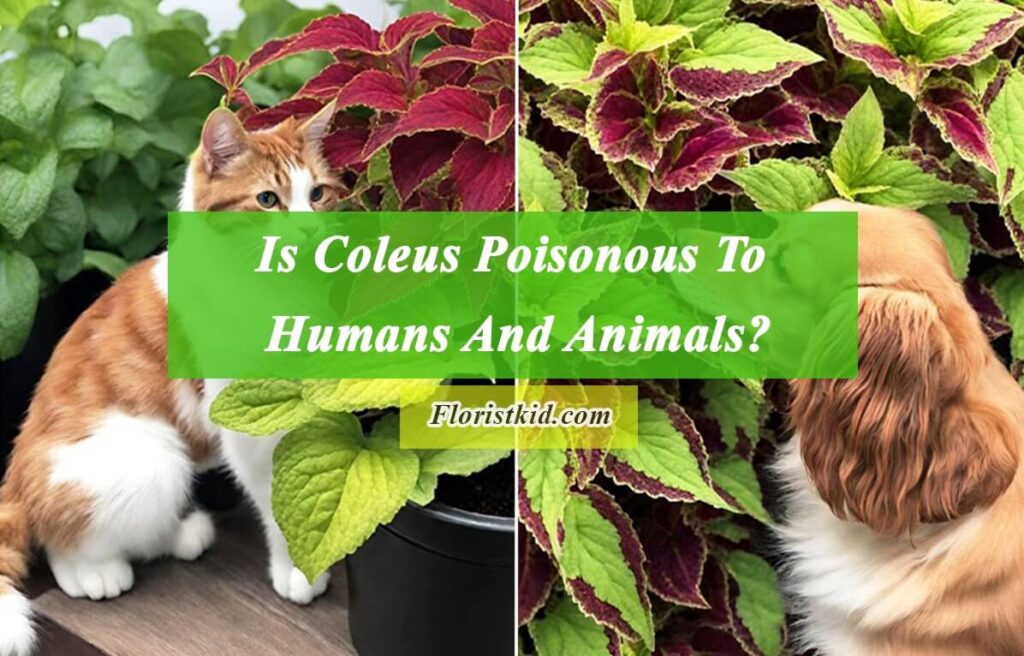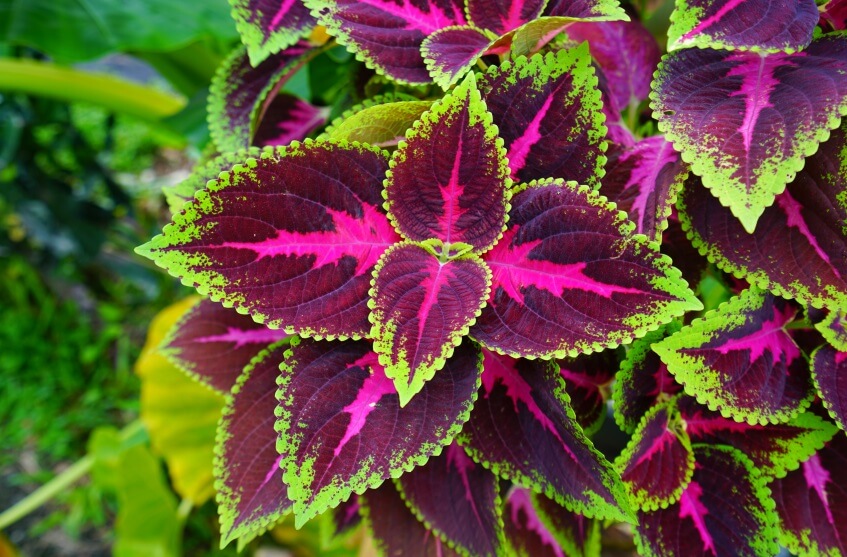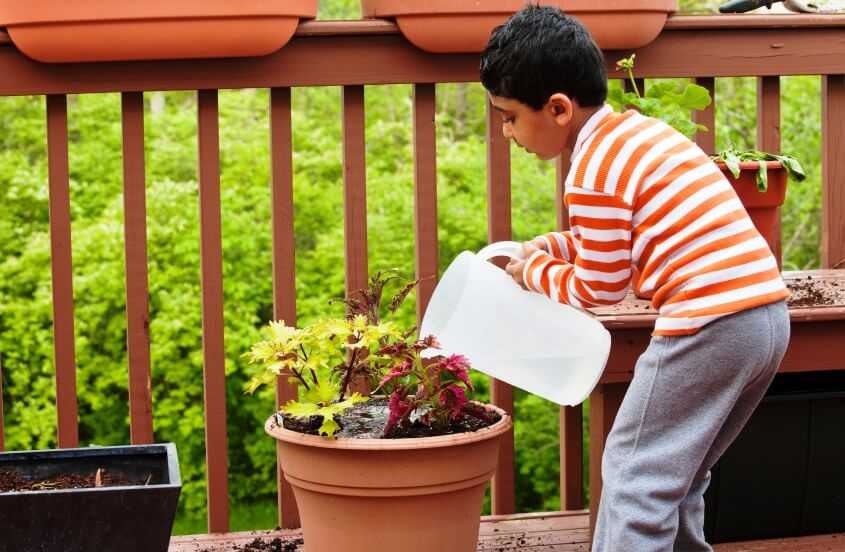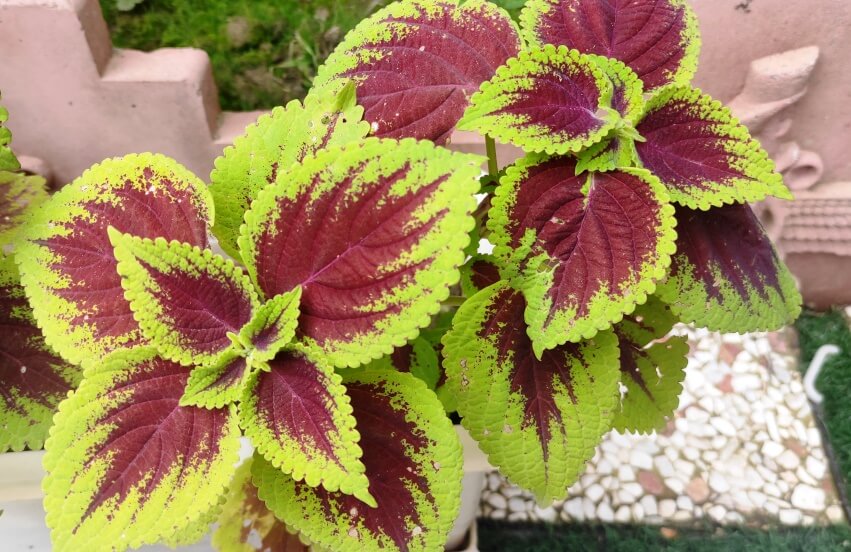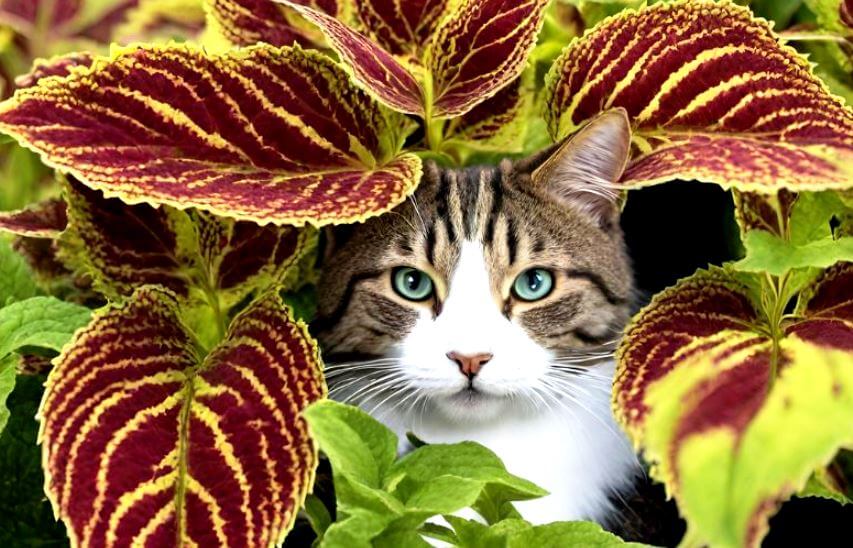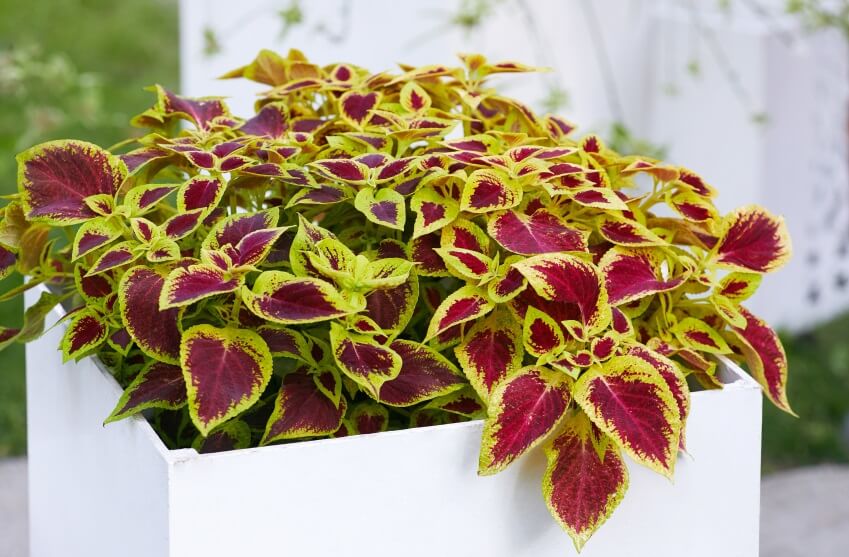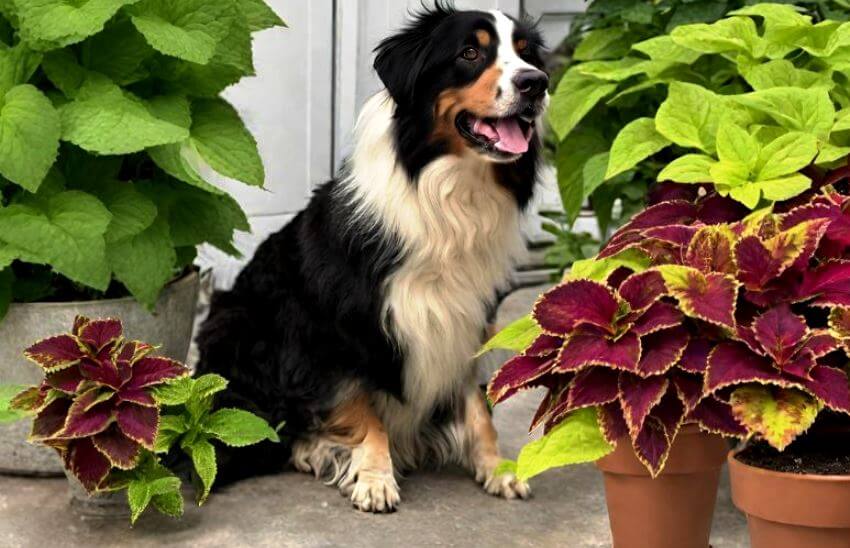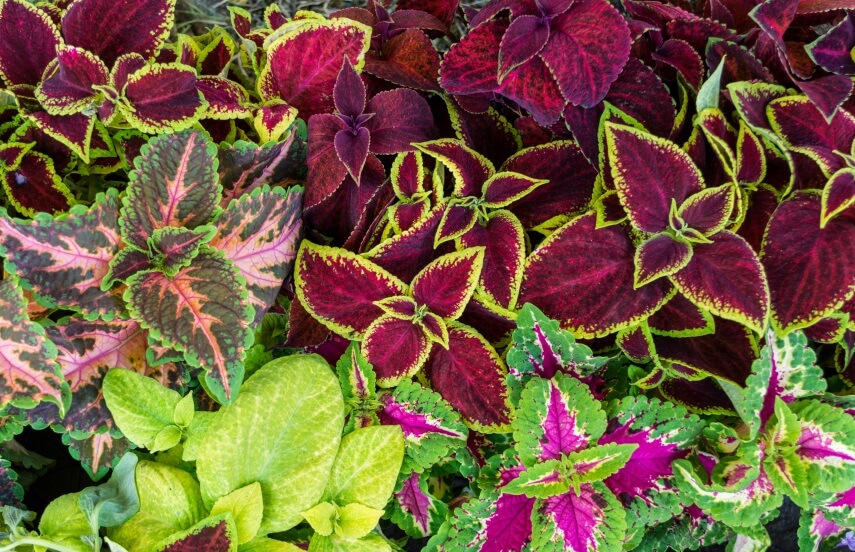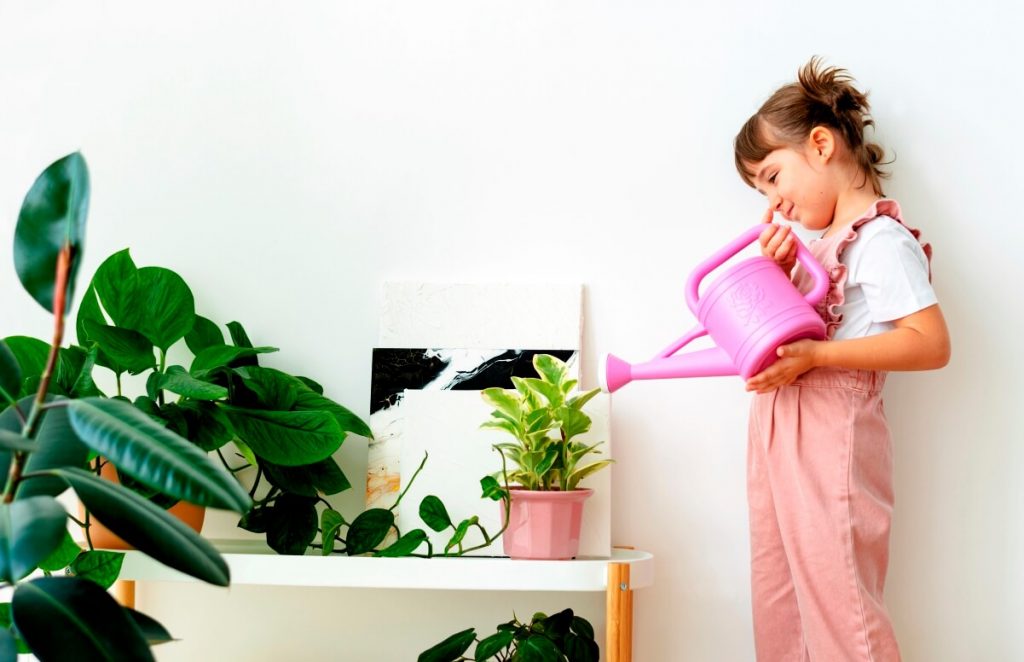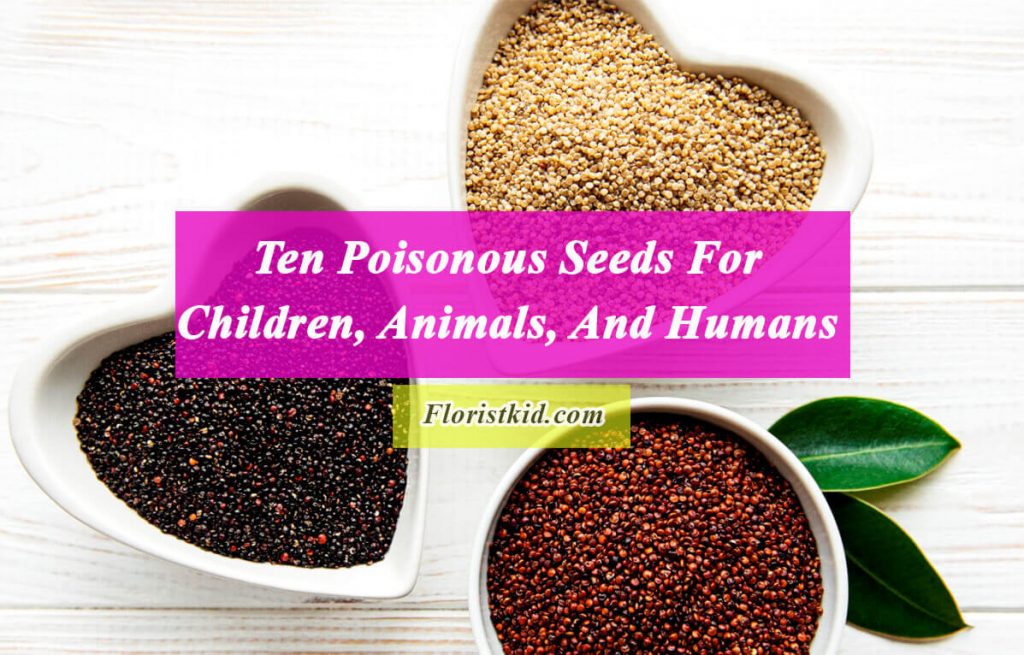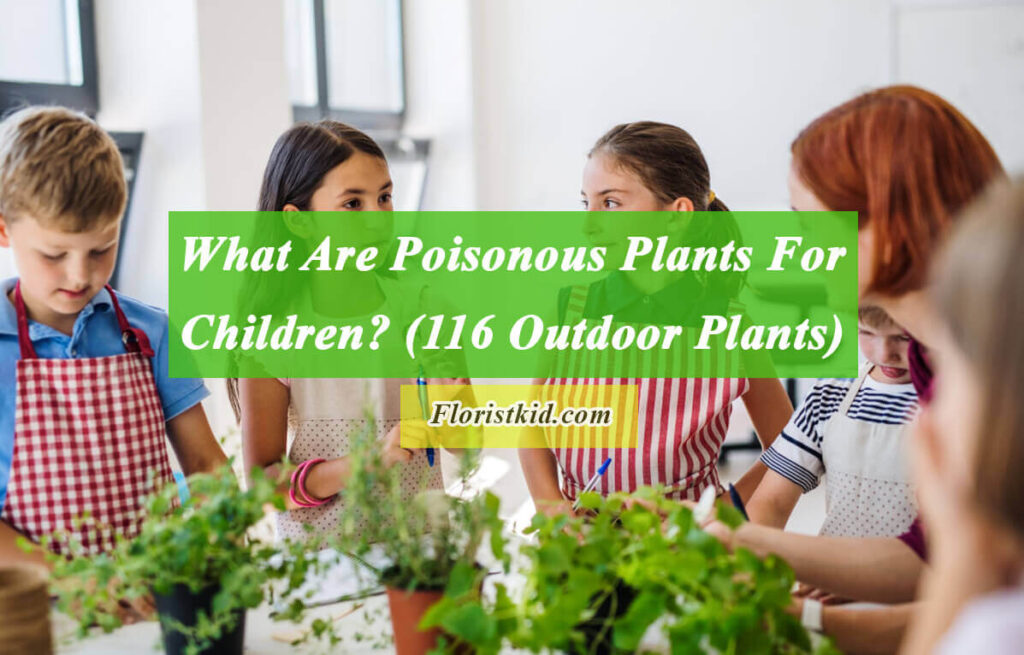Coleus (Plectranthus scutellarioides or Solenostemon scutellarioides), is an attractive ornamental plant known for its vibrant foliage and versatility in gardening. While Coleus plants are generally safe when handled cautiously, it is crucial to understand that certain varieties can be potentially toxic to humans and animals. This article aims to shed light on the potential dangers associated with Coleus and offers guidelines to ensure the safe enjoyment of this beautiful plant.
If you are interested in this topic, you can also read
<<Are Daffodils Poisonous? >> and <<Are Poinsettias Poisonous? >> articles.
Coleus Toxic Compounds
Certain cultivars of Coleus plants contain compounds known as diterpenoids, specifically coleonol (also referred to as forskolin) and coleoside [1]. These compounds are primarily found in the roots and, to a lesser extent, in the leaves and stems. Coleonol, in particular, is known for its medicinal properties, but it can also present risks if ingested in large quantities or by sensitive individuals.
Is Coleus Toxic To Humans?
When handled with caution, coleus plants are generally safe for people. But, it is worth mentioning that ingestion of Coleus plants can cause adverse effects on humans. Symptoms may vary depending on the concentration of toxic compounds consumed, the sensitivity of the individual, and the quantity consumed. Some potential risks associated with Coleus ingestion include:
1) Forskolin and Potential Cardiovascular Effects: Coleus plants are well-known for containing forskolin, a compound widely used in supplements and traditional medicine. While forskolin has several purported health benefits, it is important to note that it can also interact with the cardiovascular system. Forskolin has been reported to lower blood pressure, increase heart rate, and potentially cause arrhythmias. Individuals with cardiovascular conditions should exercise caution when using forskolin-containing products.
2) Essential Oils and Allergenic Reactions: Coleus oil, extracted from plant leaves, contains essential oils that can cause allergic reactions in susceptible individuals. These reactions may manifest as skin irritations, itching, redness, or even respiratory distress. If you experience any adverse symptoms after coming into contact with Coleus or its oils, it is recommended to seek medical advice to determine the cause and appropriate treatment.
3) Skin Sensitivity and Contact Dermatitis: Some individuals may experience skin sensitivity when coming into contact with the leaves or sap of the Coleus plant. This sensitivity can manifest as contact dermatitis, resulting in redness, itchiness, or a rash on the affected area. If you are prone to skin allergies or have a history of contact dermatitis, it is advisable to wear gloves when handling Coleus plants to minimize the risk of such reactions.
4) Gastrointestinal Distress: Nausea, vomiting, abdominal pain, and diarrhea may occur after ingestion. These symptoms are commonly observed but are usually mild and self-limiting.
Preventive Measures For Human Safety
To enjoy the beauty of Coleus plants while minimizing the risks, consider the following measures [2]:
- Caution and Awareness: Educate yourself and your children about the potential risks of Coleus plants.
- Placement: Keep Coleus plants out of reach of children and pets, especially those inclined to chew or nibble on foliage.
- Supervision and Monitoring: Keep a watchful eye on children and pets when they are near Coleus plants to prevent accidental ingestion.
Is Coleus Poisonous To Cats?
. If a cat ingests Coleus plant material, it may exhibit signs of toxicity within a short period. Some common symptoms of Coleus poisoning in cats include:
- Vomiting and diarrhea
- Drooling
- Lethargy or weakness
- Loss of appetite
- Difficulty breathing or wheezing
- Skin irritation (if in direct contact)
It is crucial to identify these symptoms promptly and seek veterinary assistance if you suspect Coleus poisoning in your cat.
Prevention Measures For Cat Owners
To protect your cats from potential Coleus toxicity, it is recommended to take the following precautions [3]:
- Education and Awareness: Familiarize yourself with your home and garden plants to identify potential risks. If you have cats, Coleus plants should be kept out of reach.
- Supervised Outdoor Access: If your cats have access to an outdoor space, ensure that they cannot reach any Coleus plants present in or around your property.
- Cat-Friendly Alternatives: Consider using cat-friendly plants, such as catnip or cat grass, which can provide safe alternatives and enrich their environment without any potential health hazards.
- Behavioral Training: Train your cat to avoid chewing on or ingesting any plants by providing appropriate chew toys and reinforcing proper behavior with positive reinforcement techniques.
Is Coleus Poisonous To Dogs?
It is crucial to know that certain Coleus varieties are toxic to dogs. Naturally occurring chemicals in Coleus plants can stimulate adverse reactions if ingested by dogs. When a dog comes into contact with or consumes parts of the Coleus plant, it may experience various symptoms, including [4]:
- Gastrointestinal Distress: Common symptoms resulting from Coleus ingestion are vomiting, diarrhea, and abdominal pain.
- Dermatological Reactions: Contact with Coleus plants may cause skin irritations or allergic responses in dogs, leading to inflammation, itching, or rashes.
- Oral and Respiratory Irritation: Chewing or nosing around the Coleus may cause mild irritation or discomfort in the mouth, nose, or throat. In severe cases, this can manifest as drooling, pawing at the mouth, or even difficulty breathing.
Prevention Measures For Dog Owners
- Limit Access: Restrict your dog’s access to areas with Coleus plants, especially if your dog tends to nibble on foliage or explore the surroundings.
- Education and Awareness: Learn to identify Coleus plants and their potential toxicity. Familiarize yourself with common symptoms of Coleus poisoning in dogs to aid swift action if accidental ingestion occurs.
- Detoxification and First Aid: If you suspect your dog has ingested Coleus or is exhibiting poisoning symptoms, contact your veterinarian immediately. They will guide you through appropriate first-aid measures or recommend further medical intervention.
- Pet-Friendly Alternatives: Consider replacing toxic plants with dog-safe alternatives to maintain a beautiful garden or indoor landscape without compromising your pet’s well-being. Many pet-friendly houseplants and garden options are available that can add both aesthetics and safety.
Conclusion
While Coleus is generally safe for most individuals, it is essential to be aware of its potential toxic components and associated health risks. Care should be taken when using Coleus extracts, especially for individuals with underlying cardiovascular conditions or known allergies.
Pet owners should protect their furry companions from Coleus plants to prevent potential poisoning. As with any plant or substance, understanding the potential risks and practicing moderation is key to enjoying the beauty of Coleus without compromising your family health or the well-being of your pets.
Still, further research is needed to fully understand the mechanisms of action and clinical efficacy of this plant and its extracts. Additionally, more rigorous evaluation is required to determine its natural chemicals’ safety and toxicity profiles.

